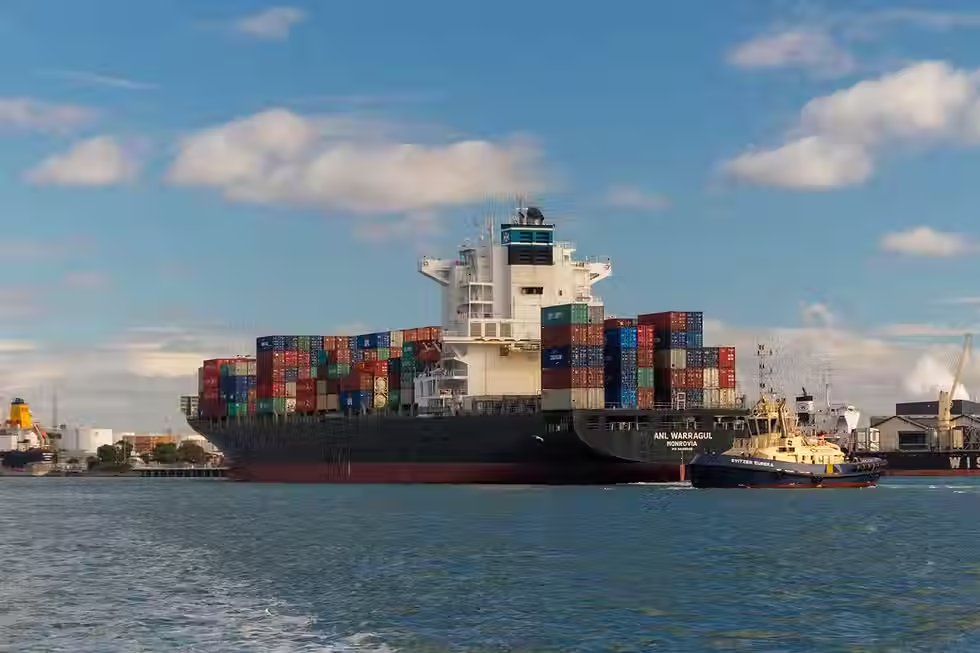Understanding the Importance of a Cargo Clearance Permit for International Shipping
- declarationnexus
- Oct 13, 2024
- 3 min read
Updated: May 6, 2025

When it comes to international shipping, moving goods between countries takes careful preparation and following the rules. One key part of this is getting the right paperwork, especially the cargo clearance permit. This permit is really important for making sure items can move smoothly, letting shipments pass through customs quickly and easily.
By helping everything stick to customs laws, the cargo clearance permit prevents holdups and potential legal problems. This means businesses can keep running smoothly while also meeting their needs to ship things globally. It's important for anyone involved in worldwide trade to realise how crucial this permit is.
What is a Cargo Clearance Permit?
An import/export permit is needed for moving goods internationally by ship. This document shows that all customs rules have been followed, meaning cargo can pass through customs without issues. Its main goal is guaranteeing compliance with regulations from customs officials.
This prevents unauthorised or illegal shipments from coming into or leaving a country. For companies doing business worldwide, getting an import/export permit is important. It helps goods flow smoothly, lowers the chance of fines, and supports successful global trade overall.
Benefits of Obtaining a Cargo Clearance Permit in Singapore
Streamlined Operations
Obtaining a cargo clearance permit ensures smoother customs processes, reducing the risk of delays at checkpoints. This results in quicker clearance times and better operational efficiency. With the right documentation setup, shipments can flow smoothly through ICA and Singapore Customs without many issues getting in the way.
Seamless Trade
A valid cargo clearance permit enables compliance with Singapore’s and international customs regulations. This means that businesses can take part in international trade with confidence, avoiding any penalties and making sure goods can move easily between countries. By fulfilling the requirements, companies can develop stronger relationships with overseas partners and clients.
Cost Savings
Having the correct cargo clearance permit allows businesses to take advantage of preferential tariffs and trade agreements. If companies can prove where their goods come from and ensure they meet customs rules, they can lower import duties and taxes. This reduces the overall costs of shipping. Properly clearing goods through customs also helps prevent costly delays and penalties. It means companies can better manage the finances of shipping by avoiding unexpected costs.
The Cargo Clearance Process

Register for a Customs AccountBusinesses must register for a customs account with Singapore Customs using their Unique Entity Number (UEN).
Submit Cargo Clearance Permit Application via TradeNetApply for the cargo clearance permit using TradeNet, Singapore’s electronic system for permit declarations. Ensure all required documents are uploaded.
Provide Supporting DocumentsWhen sending important documents internationally, make sure to include vital things like the commercial invoice, packing list, bill of lading, and certificate of origin.
Pay Duties and TaxesCalculate and pay any applicable duties and GST for imported goods before the cargo can be released from customs.
Receive Permit ApprovalOnce all requirements are met, the cargo clearance permit is issued, allowing goods to be moved out of customs control.
Inspection and ReleaseThe ICA may conduct inspections to ensure compliance before goods are cleared. Once completed, the cargo is released for delivery.
Final Thoughts
Getting a grip on what a cargo clearance permit is important for any organisation aiming to be involved in international shipping. This permit is not just for complying with customs regulations and ensuring smooth operations-it's also vital to prevent delays and expensive penalties.
To ensure that your company is handling the complexities of customs clearance in Singapore, you must partner with a reputable service provider like Declaration Nexus. Our team of experts offers valuable expertise and support, allowing businesses to concentrate on core operations while also guaranteeing problem-free movement of shipments across borders.




